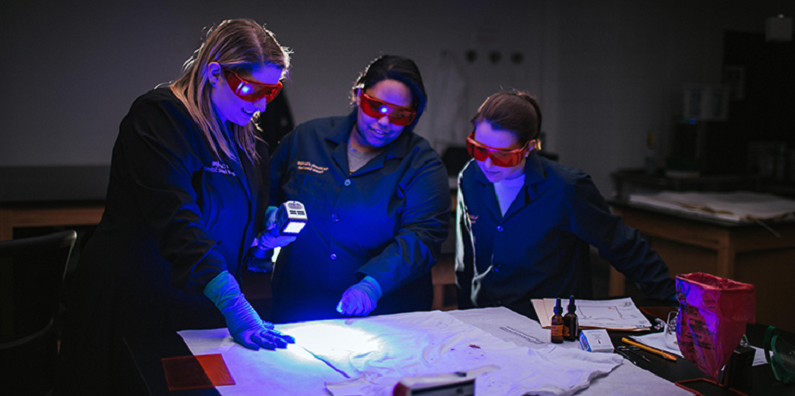
Genealogy, often seen as a hobby for history enthusiasts, holds far more power than just mapping family trees and uncovering ancestors. Beyond its traditional use, genealogical research has increasingly become a pivotal tool in the realm of law and justice. Here we explore the transformative role that tracing lineage can play in resolving legal issues. From land disputes and inheritance battles to aiding in criminal investigations, the ability to trace one’s ancestry can be crucial in determining legal outcomes.
Contents
Historical Precedents of Genealogy in Legal Battles
Genealogy has been intertwined with legal proceedings for centuries. Its utility in legal contexts is not a recent development but rather a longstanding practice. Historical precedents provide a firm foundation for understanding the role of genealogical research in legal disputes, especially in matters concerning land, inheritance, and personal identity.
Land and Property Disputes
In historical contexts, land and property rights often depended heavily on ancestral claims, which could only be substantiated through detailed family records. For instance, in medieval Europe, genealogical records were crucial in establishing legitimate claims to feudal lands. These disputes often required extensive family trees to be presented in court to trace lineage back to the original holders of the land. Such practices were not limited to Europe; in many cultures, ancestral lineage was critical to maintaining or reclaiming familial lands that had been lost or taken over by other parties.
Inheritance and Probate Cases
The tracing of genealogies has also been pivotal in inheritance and probate cases. Historical legal systems frequently relied upon genealogical data to determine the rightful heirs to estates. In England, for example, probate courts would often refer to genealogical records to resolve inheritance disputes when the deceased had not left a clear will. This practice ensured that estates were passed down through the family line, adhering to laws of primogeniture or other local customs dictating inheritance.
Cases of Identity and Citizenship
Genealogical research has also played a significant role in verifying identities and establishing citizenship, especially in cases where birth records were lost or never formalized. During the mass migrations of the 19th and early 20th centuries, individuals and families needed to prove their origins to receive citizenship or legal rights in new countries. Tracing one’s ancestry became essential in proving these ties, often influencing decisions on nationality and the rights associated with it. Such historical cases underscore the importance of genealogical research in not only understanding one’s heritage but also securing legal recognition and rights [1].

Modern Applications of Genealogical Research in Law
As technology and societal norms have evolved, so too have the applications of genealogy in legal contexts. Today, genealogical research is used in a variety of modern legal scenarios, ranging from immigration to criminal justice. These applications demonstrate how the field of genealogy has adapted to meet contemporary legal challenges.
Establishing Family Connections in Immigration Cases
One significant area where genealogy is applied today is in immigration law. Genealogical research can help establish familial connections that are necessary for family-based immigration petitions. For example, individuals seeking to bring relatives to a new country under family reunification policies may need to provide extensive genealogical evidence to prove their relationships. This often involves gathering birth, marriage, and death certificates, sometimes going back several generations, to fulfill legal requirements and facilitate the migration process.
Uncovering Heirs in Unclaimed Estate Proceedings
Genealogy also plays a crucial role in cases involving unclaimed estates. When individuals die intestate (without a will) and apparent heirs are not immediately known, genealogists are called upon to research the family tree of the deceased to locate potential heirs. This not only ensures that the estate is distributed according to the laws of succession but also that rightful heirs receive their inheritance. Such proceedings can reveal forgotten or unknown relationships, highlighting the detective-like nature of genealogical work in legal contexts.
Genealogy in Criminal Investigations and Cold Cases
In the realm of criminal justice, genealogical research has become a powerful tool, especially with the advent of DNA technology. Law enforcement agencies increasingly utilize genealogical databases to solve cold cases and identify suspects through genetic links. For instance, the capture of the Golden State Killer was a result of meticulous genealogical research combined with DNA evidence, setting a precedent for how genealogy can aid in criminal investigations. This approach not only helps bring perpetrators to justice but also provides closure for families who have long awaited answers [2].
DNA Testing and Its Legal Implications
The use of DNA testing in conjunction with genealogical research has expanded its legal applications even further. In paternity cases, for example, DNA results are used to establish familial relationships definitively. This technology is also used in legal battles involving tribal citizenship, where genealogy and DNA tests verify one’s lineage to a particular tribe, which can be a requirement for membership and associated rights. These advancements underscore the increasing integration of genealogy with modern legal processes, making it an indispensable tool in the legal arsenal.
Ethical Considerations and Challenges of Genealogy
While genealogical research offers numerous benefits in legal contexts, it also presents a host of ethical considerations and challenges. These concerns are pivotal in understanding the responsibilities of those who engage in genealogical research, especially as it intersects with sensitive personal and legal matters.
Privacy Concerns in Accessing Family Records
One of the primary ethical challenges in genealogical research involves privacy concerns. As researchers dig into personal family records, they often encounter sensitive information that may not be intended for public disclosure. This includes details about medical histories, familial disputes, and other personal data. The ethical handling of such information requires strict adherence to privacy laws and guidelines to ensure that the privacy and dignity of individuals and their families are respected. Researchers must navigate the fine line between uncovering necessary information for legal purposes and protecting individual privacy rights [3].
The Accuracy and Misuse of Ancestral Data
Another significant ethical issue is the accuracy and potential misuse of ancestral data. Inaccuracies in genealogical research can lead to wrongful conclusions, which can have serious legal repercussions. Misidentification, errors in historical records, and misinterpretation of genetic data can all lead to incorrect family connections, affecting legal outcomes in cases like inheritance disputes or criminal investigations. There is a risk of misuse of genealogical data for discriminatory purposes, such as denying claims or benefits based on one’s lineage. Ethical genealogy practices must ensure that data is not only accurate but also used responsibly.
Legal Limitations and Regulations Governing Genealogical Research
Genealogical research is also subject to various legal limitations and regulations that govern how data can be collected, stored, and used. These regulations vary significantly across jurisdictions and can affect how genealogical research is conducted and applied in legal contexts. For instance, some laws limit the use of genetic information in making employment or insurance decisions.
The increasing use of DNA databases raises questions about consent and the rights of individuals to control their genetic information. Navigating these legal frameworks is essential for conducting ethical genealogical research that respects both the law and the rights of individuals involved.

Case Studies of the Legalities of Genealogy
To illustrate the practical application of genealogical research in legal contexts, we can explore several compelling case studies. These examples highlight how genealogy has been effectively used to resolve disputes, identify heirs, and even aid in criminal investigations, providing real-world insights into the power and utility of ancestral research in the legal field.
Solving a Land Dispute Through Historical Land Records
One notable case involved a complex land dispute in rural Virginia, where multiple parties claimed ownership over a parcel of land following the discovery of valuable minerals. Genealogical research was employed to trace the lineage of the original landowners, whose ownership dated back to the early 19th century.
By accessing historical deeds and family wills, genealogists were able to establish a clear line of inheritance. This information proved pivotal in court, allowing the judge to make an informed decision on the rightful owner based on the lineage of claimants. The resolution of this case underscored the importance of detailed genealogical records in substantiating legal claims to property [4].
Identifying Heirs in a High-Profile Inheritance Case
Another significant application of genealogy occurred in a high-profile inheritance case, where a wealthy individual passed away without a will, leaving behind a sizable estate. With no immediate family members coming forward, the state initiated a search for potential heirs. Professional genealogists were hired to construct the family tree of the deceased, ultimately uncovering distant relatives who were previously unknown.
Through meticulous research and verification of family connections, these individuals were legally recognized as the heirs, allowing the estate to be distributed according to the laws of intestacy. This case highlights how genealogy can uncover familial links that are crucial in determining the rightful heirs to an estate.
The Role of DNA Testing in Establishing Paternity and Its Legal Outcomes
In a landmark case, DNA testing combined with genealogical research played a decisive role in a paternity dispute. The case involved a man claiming to be the biological father of a child, seeking custodial rights. Traditional genealogical methods were initially used to establish a potential family connection, but it was DNA testing that provided conclusive evidence.
The results not only confirmed the man’s claims, leading to a reevaluation of custodial arrangements, but also set a precedent for the use of genetic genealogy in family law. This example demonstrates the integration of modern genetic technology with traditional genealogical research to achieve justice in familial legal matters.
References
[1] Law enforcement use of genetic genealogy databases in criminal investigations
[2] Is It Ethical to Use Genealogy Data to Solve Crimes?
[3] Forensic Genetic Genealogy Searches: What Defense Attorneys & Policy Makers Need to Know
[4] Prosecuting Cold Cases Using DNA

